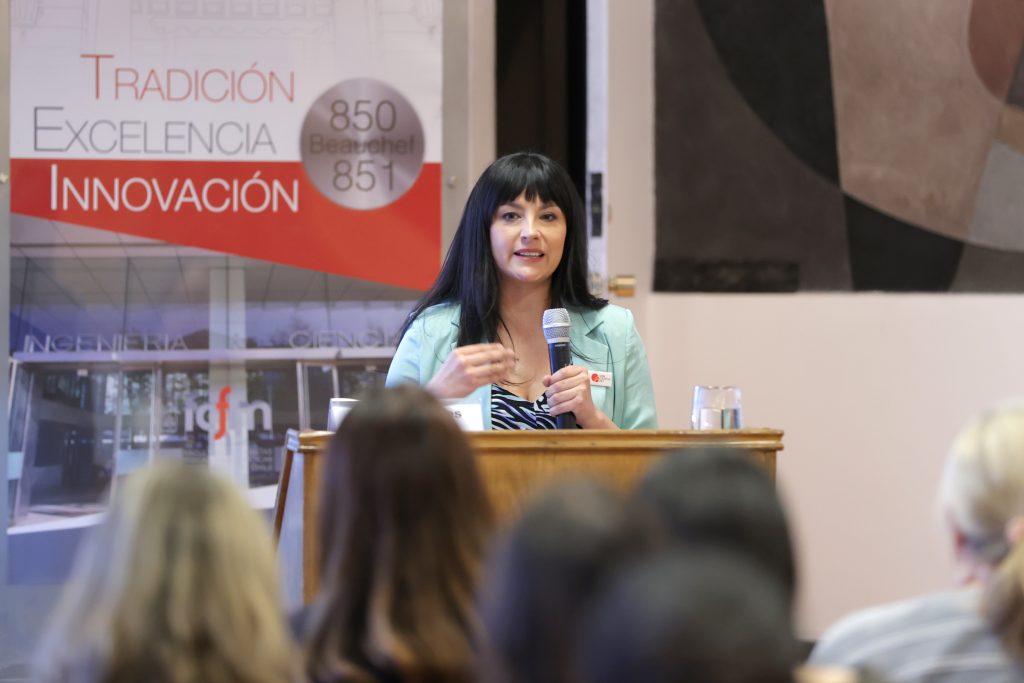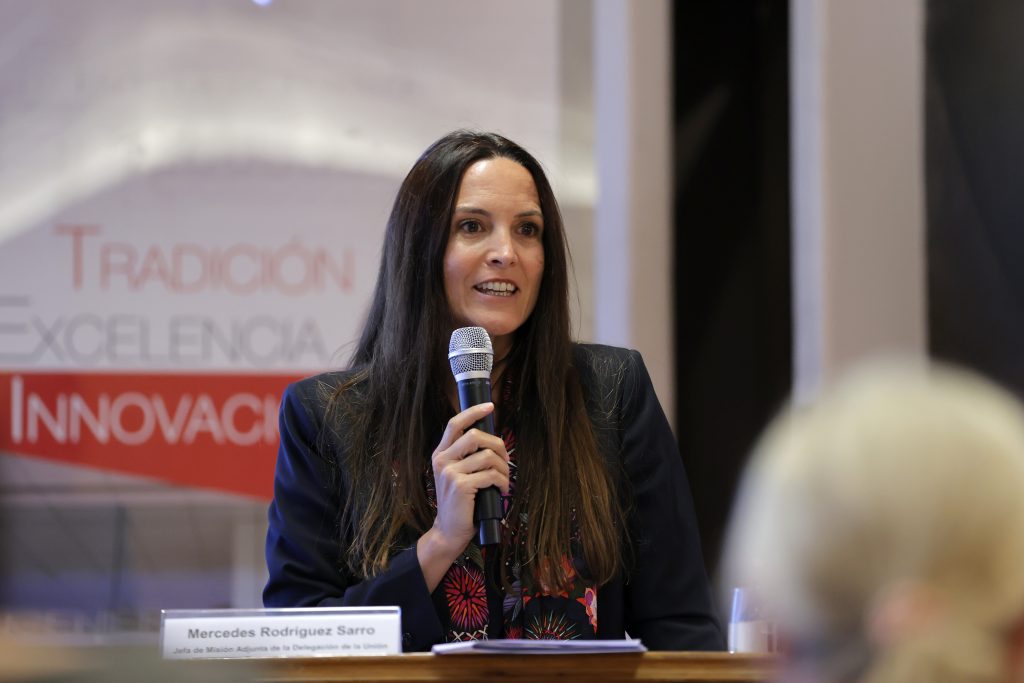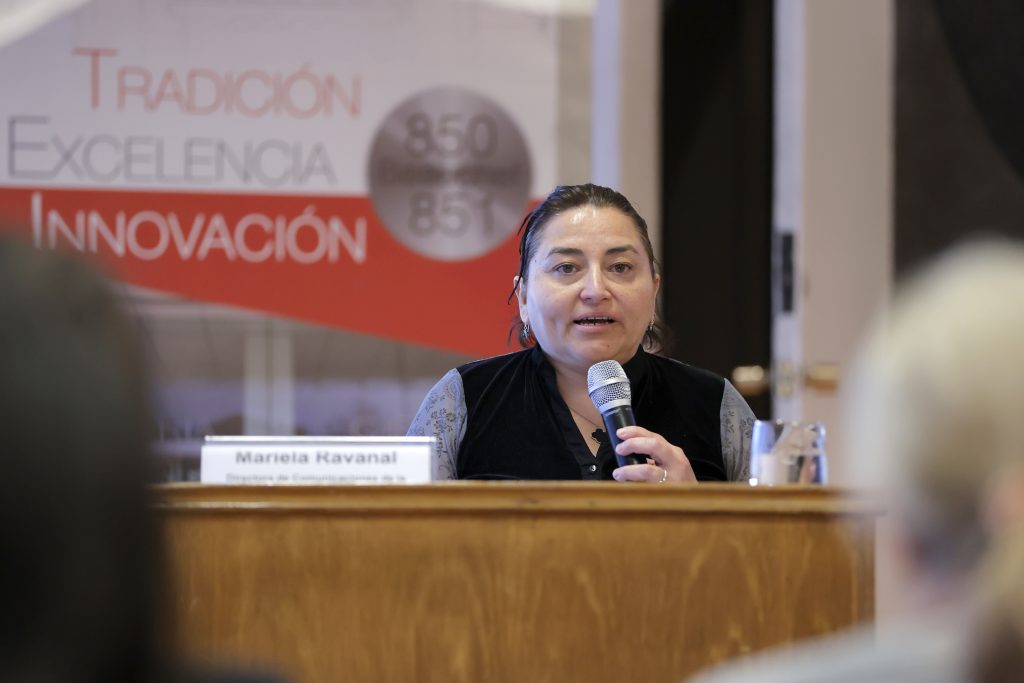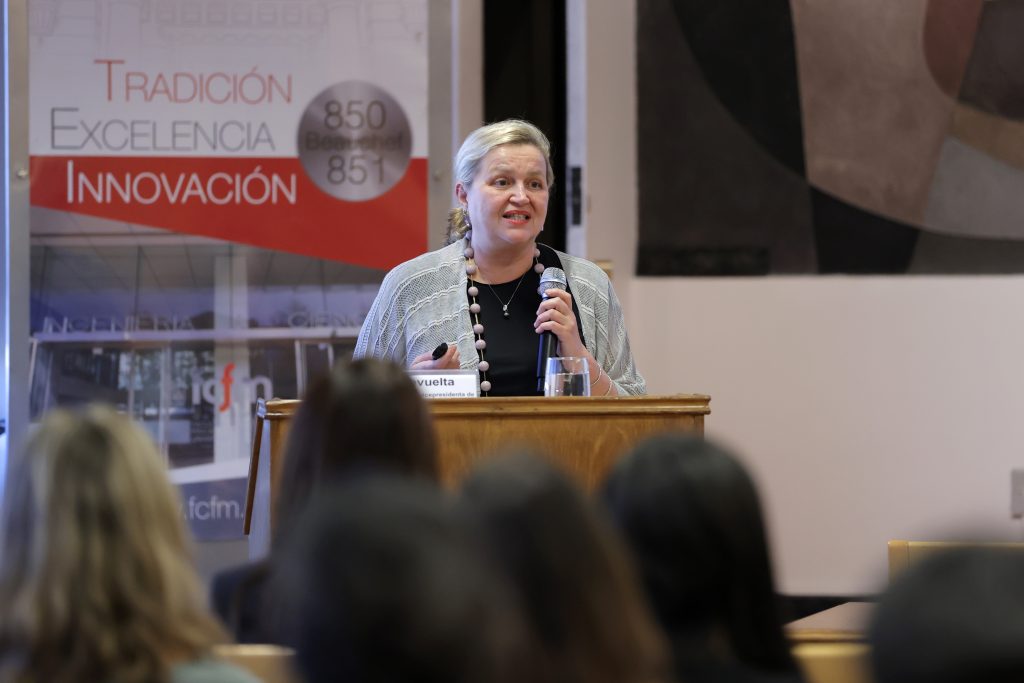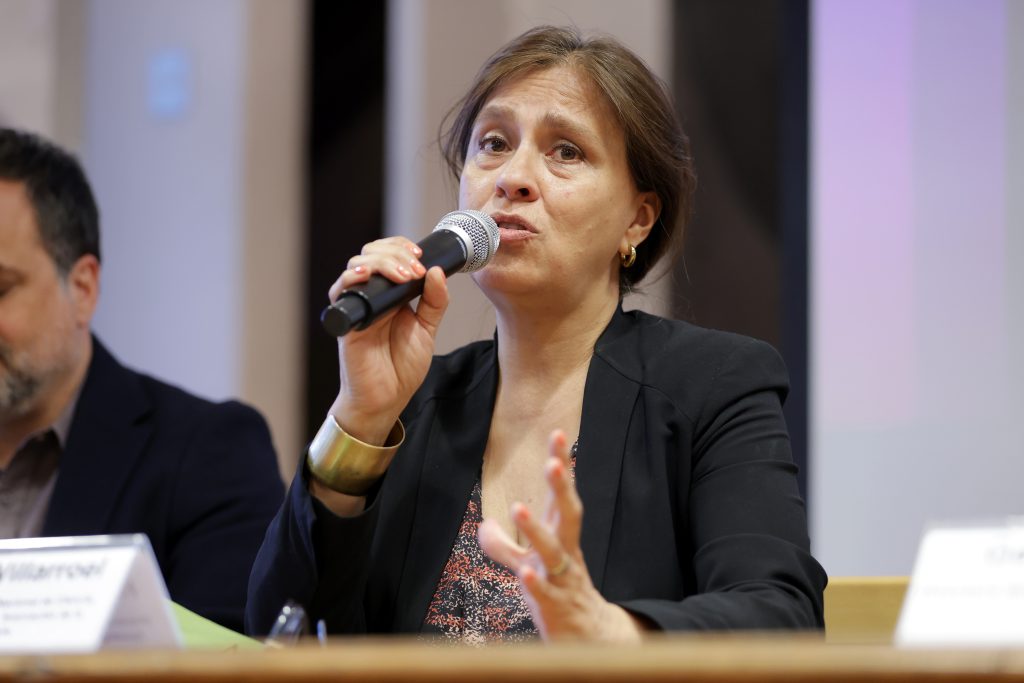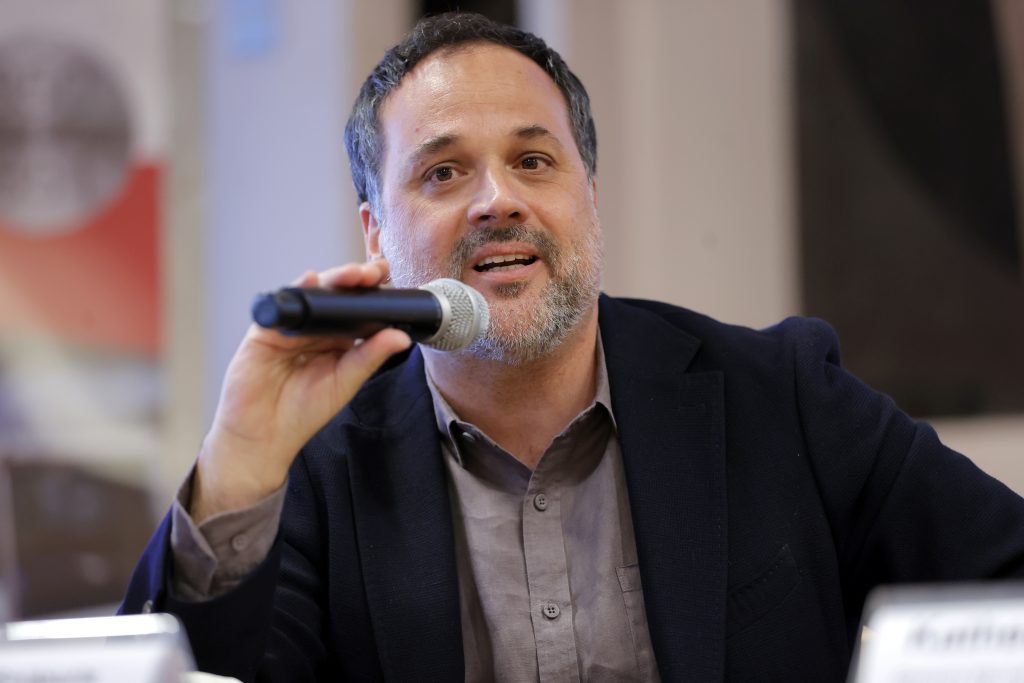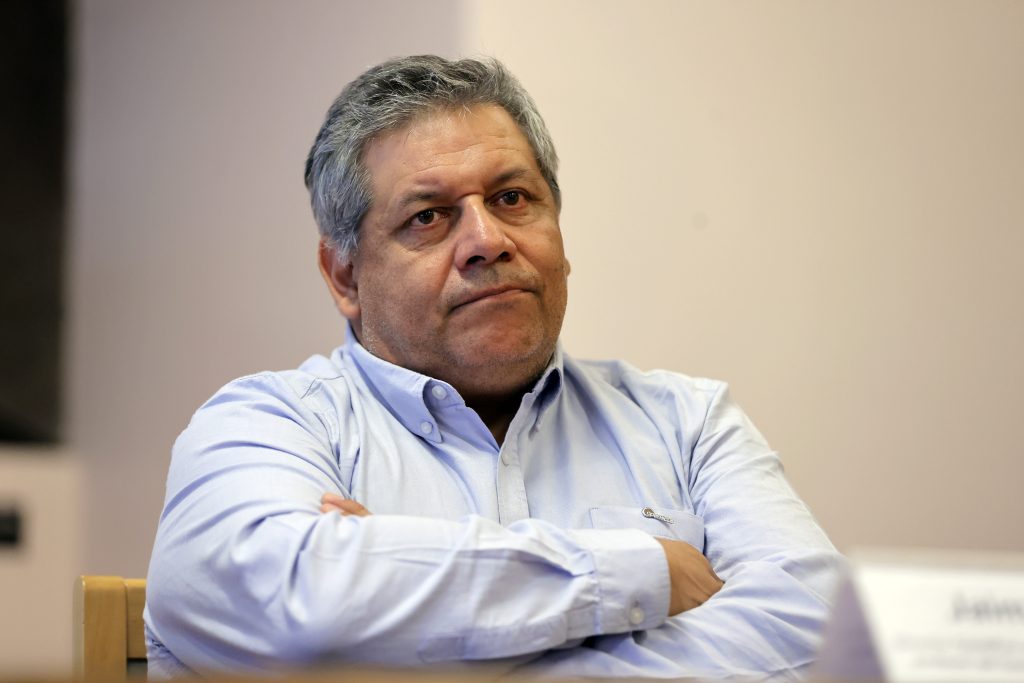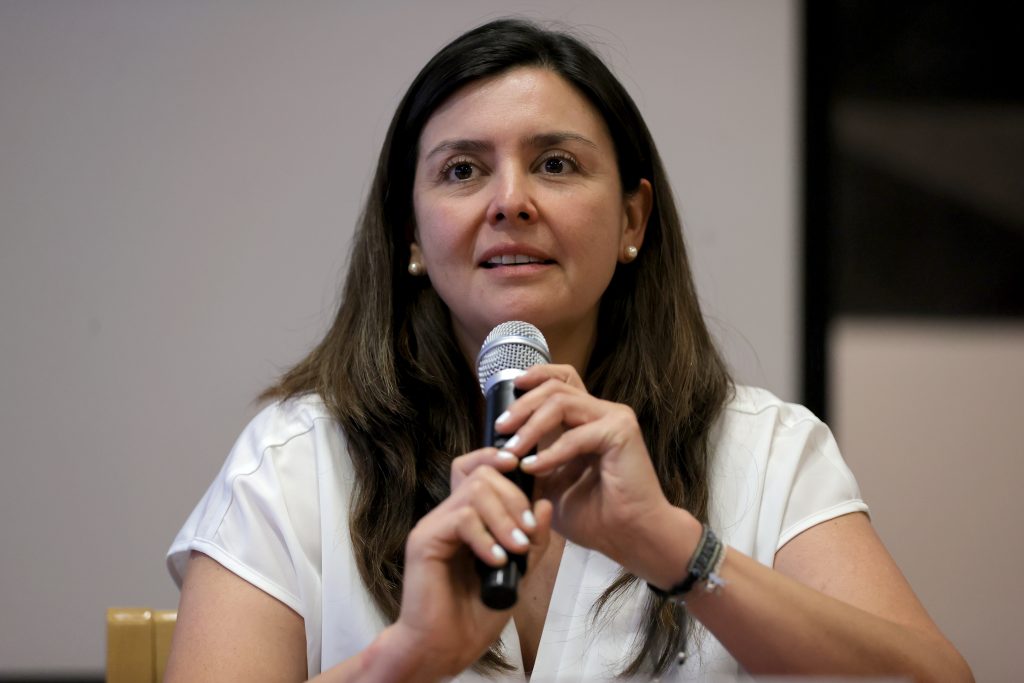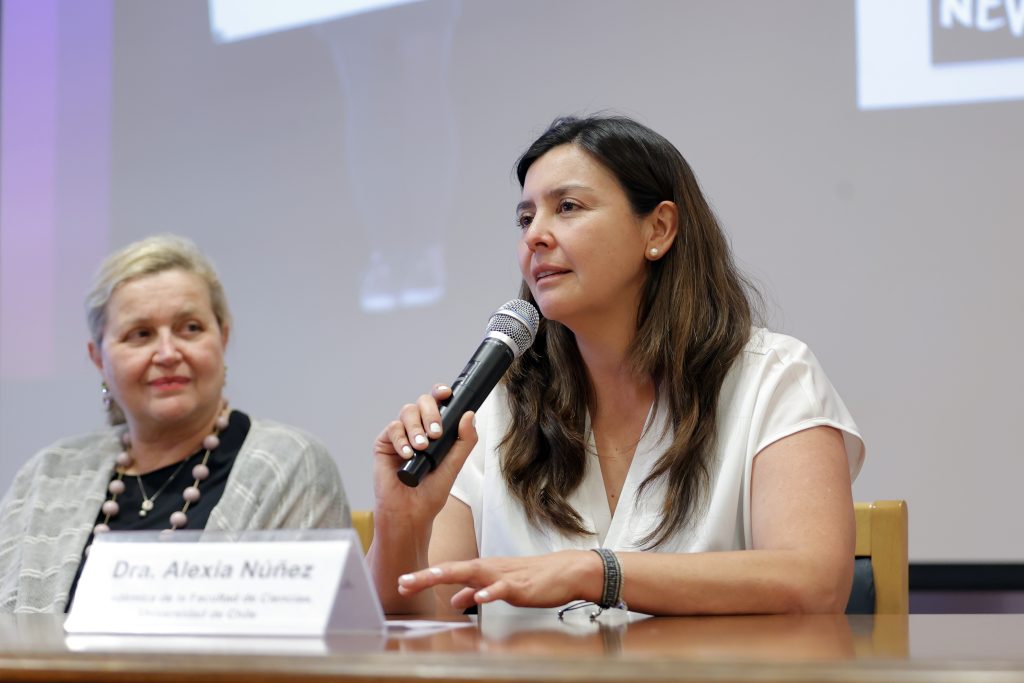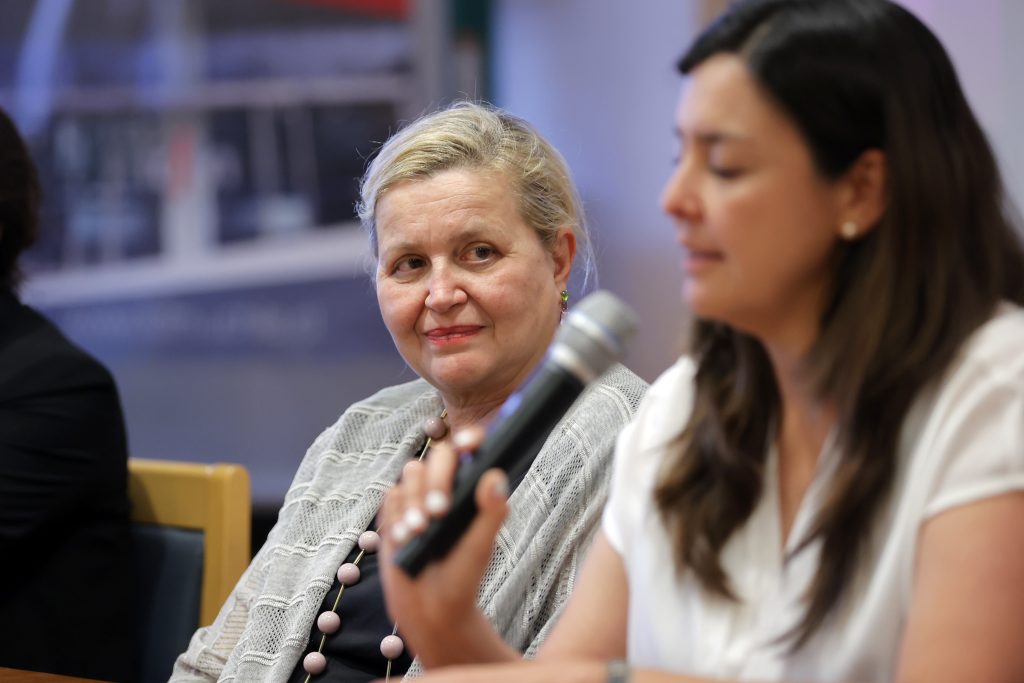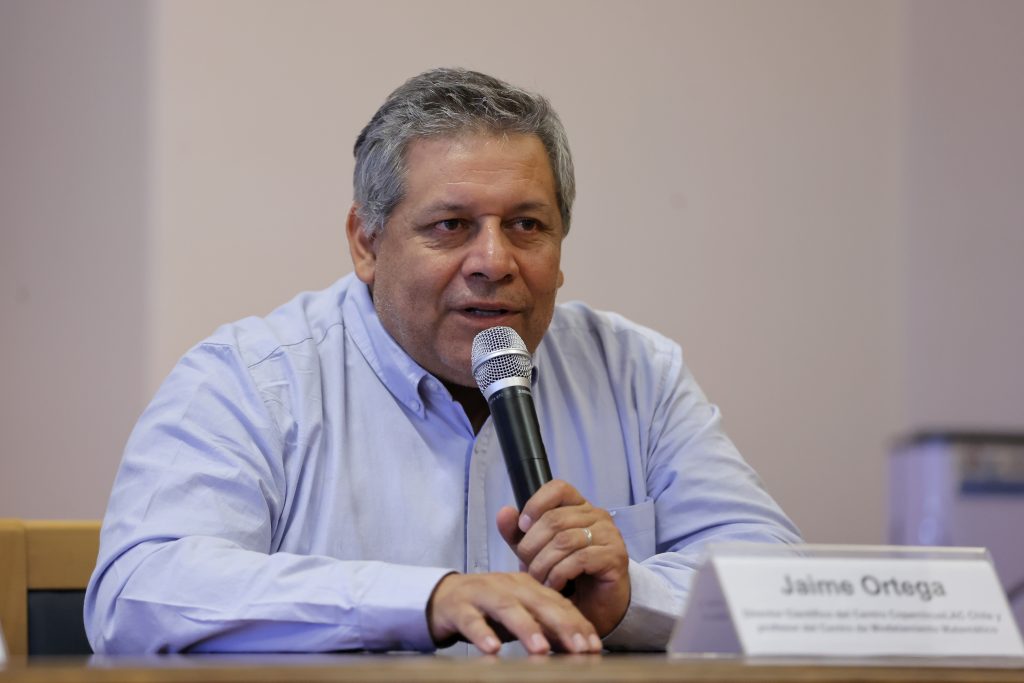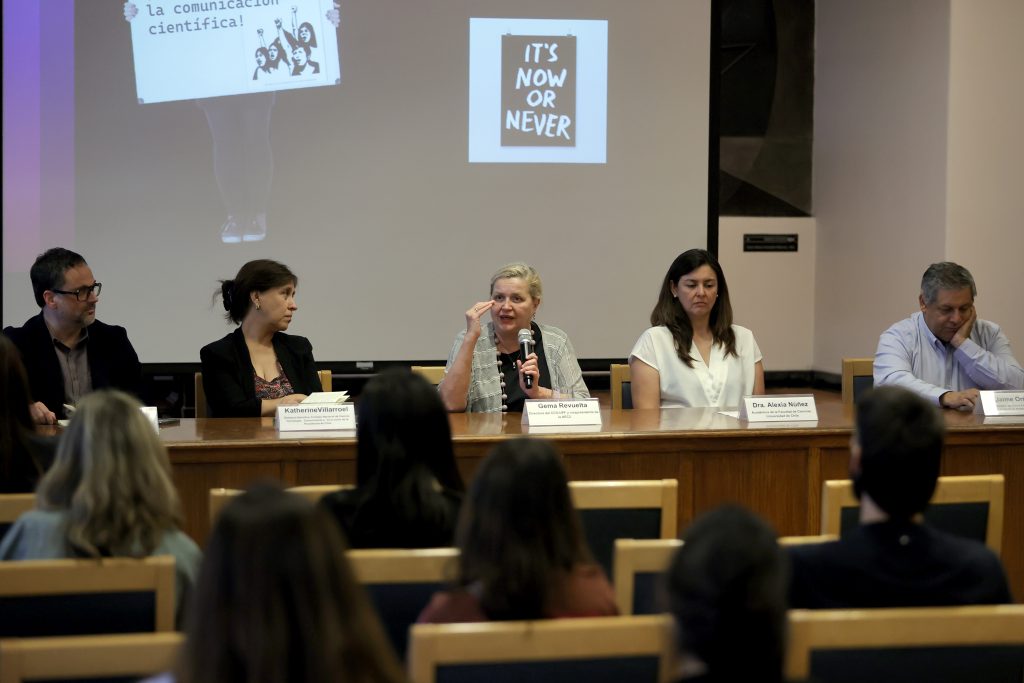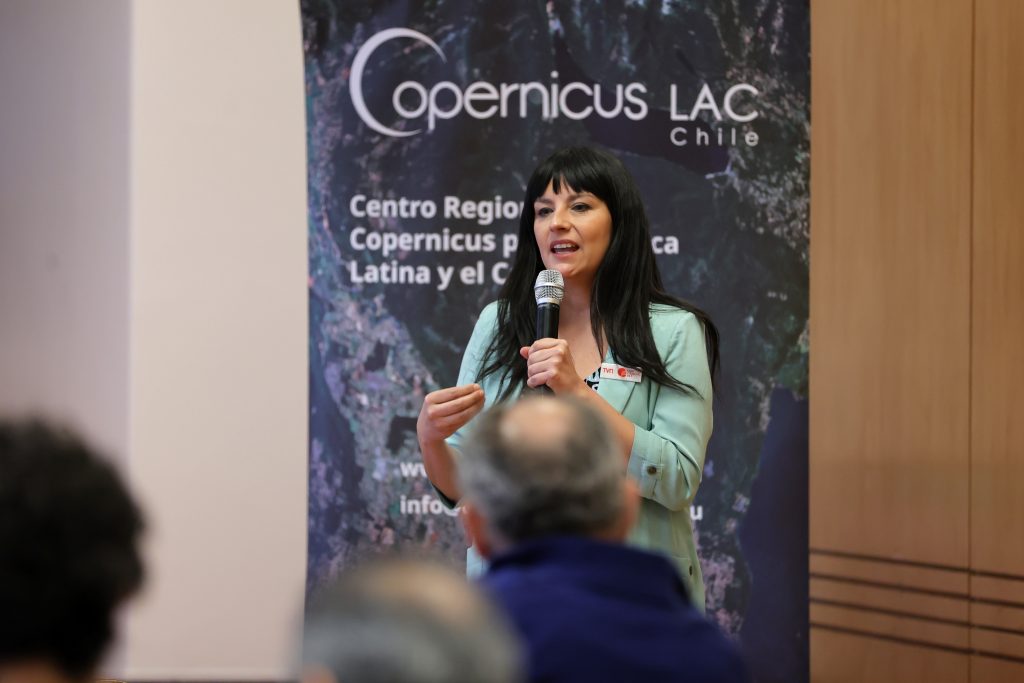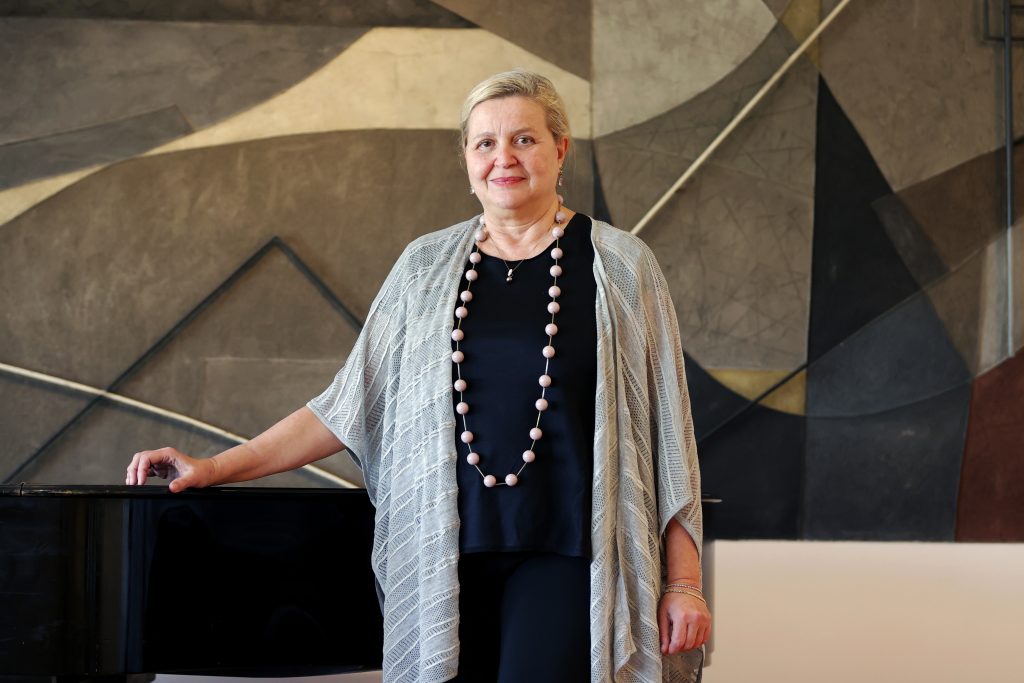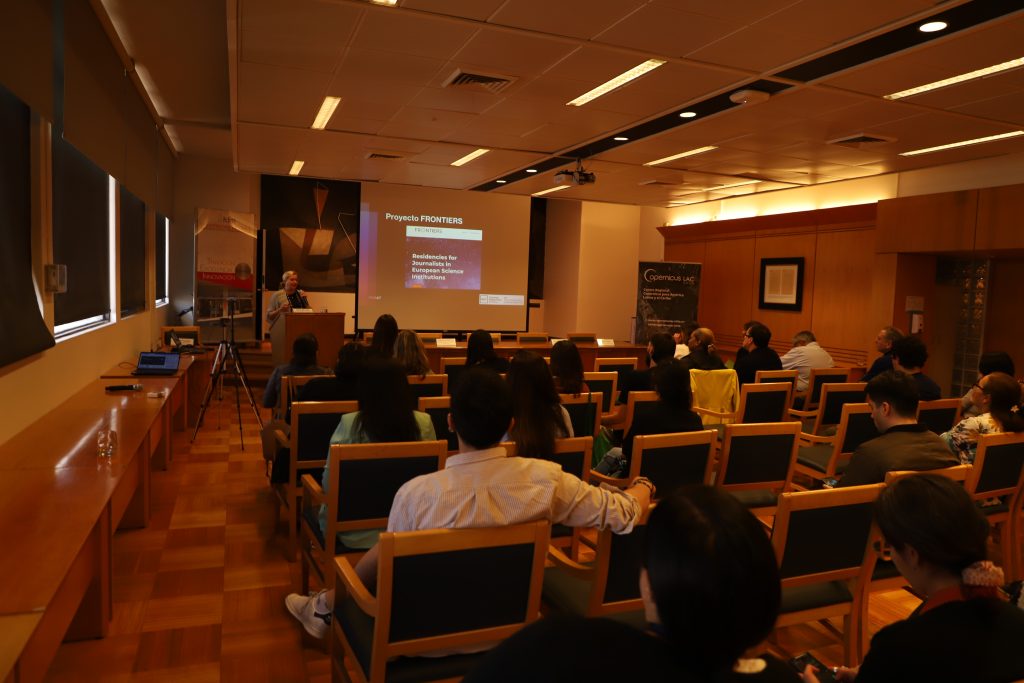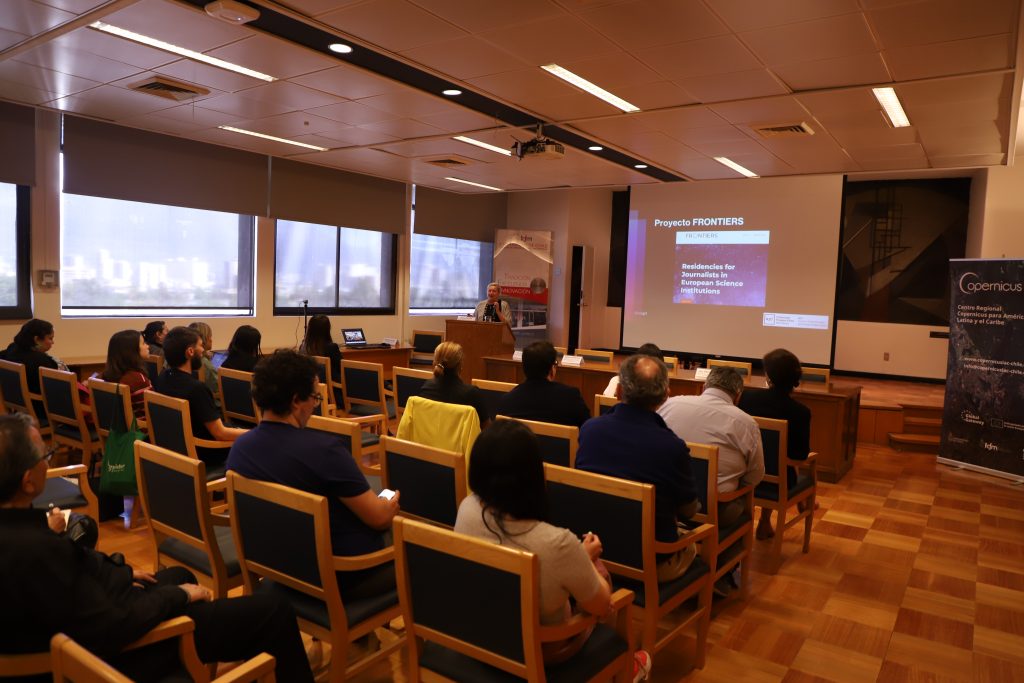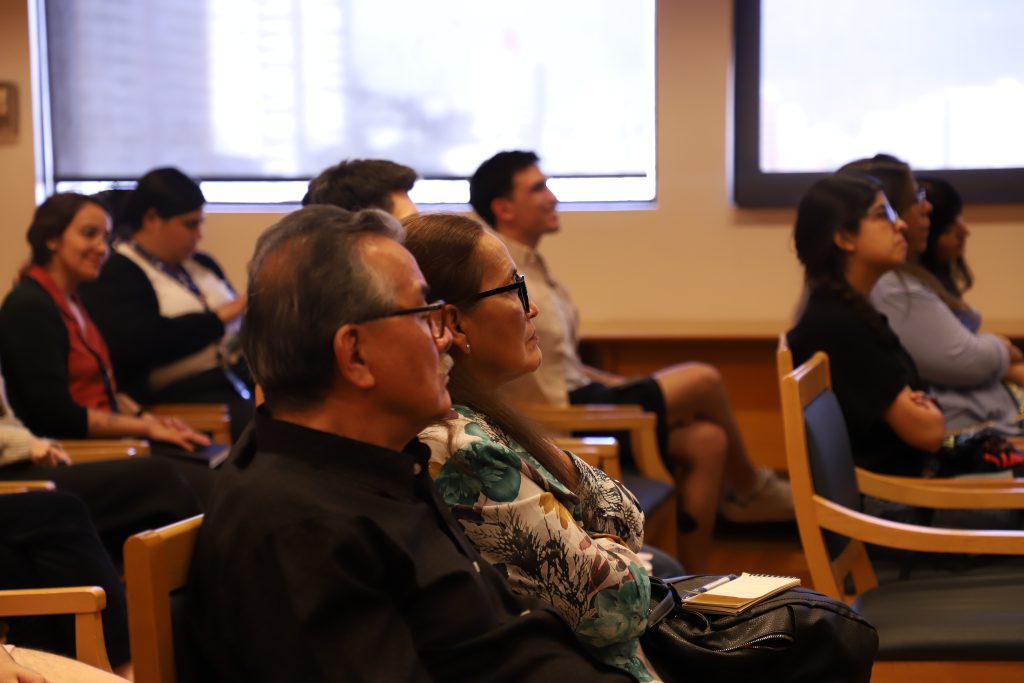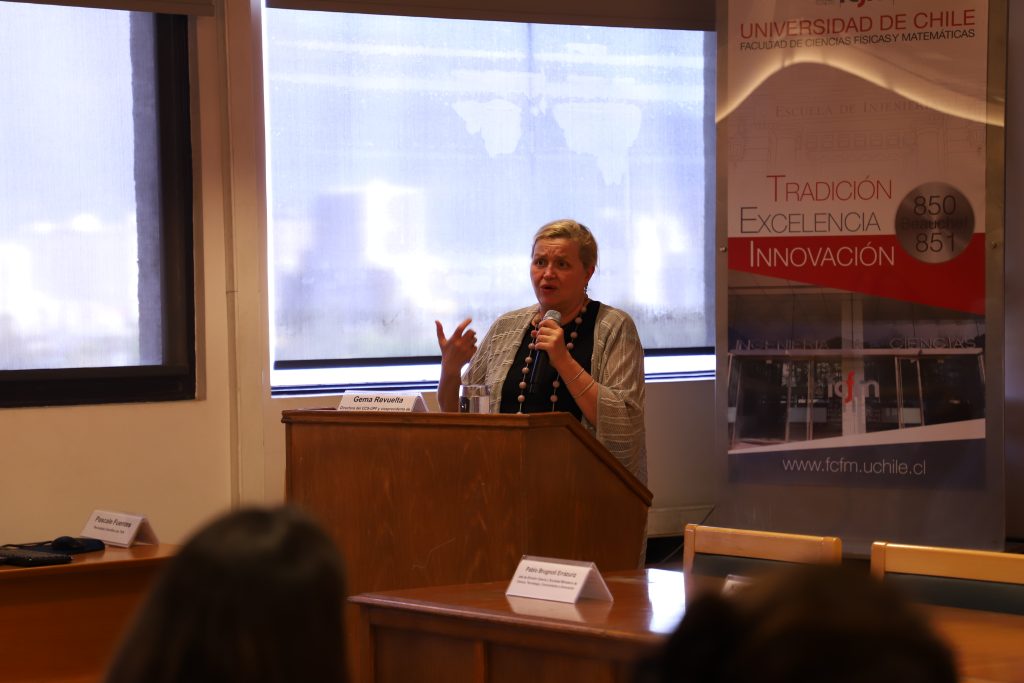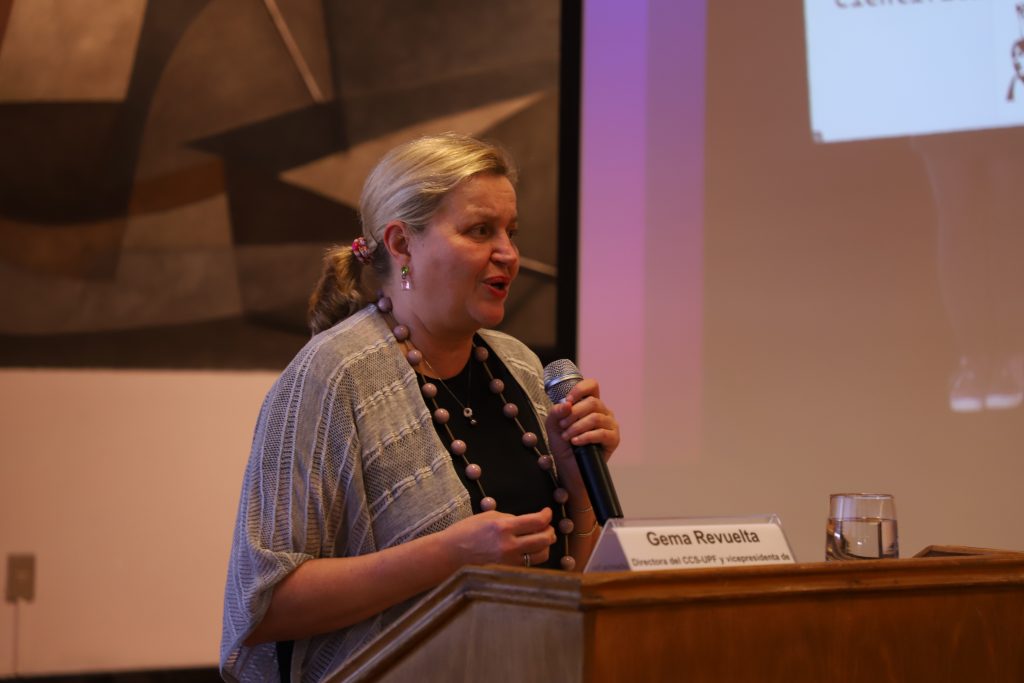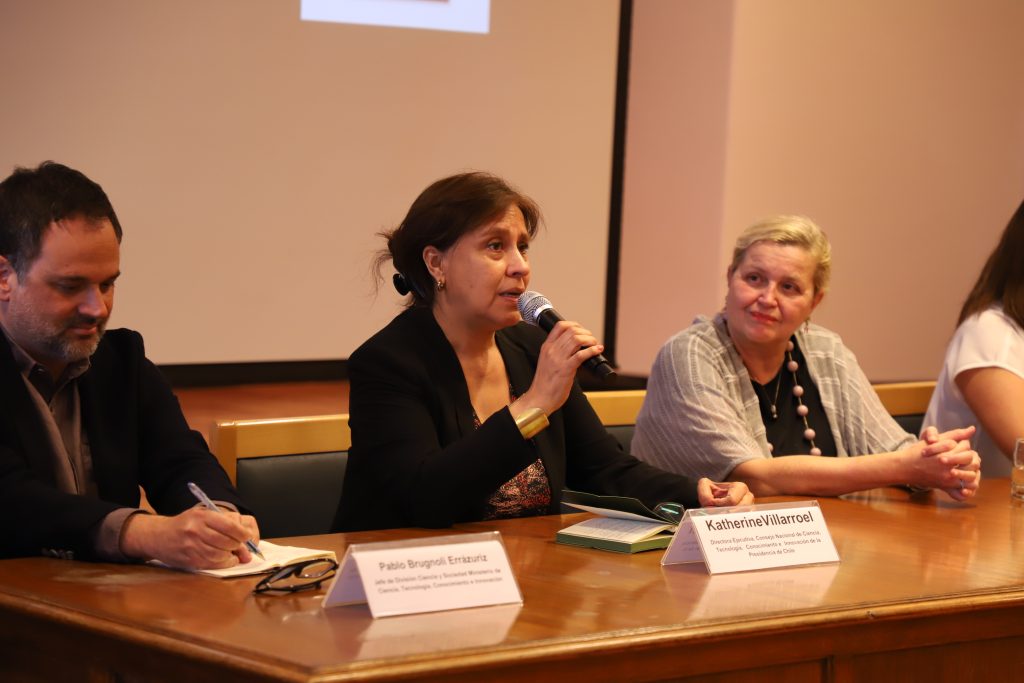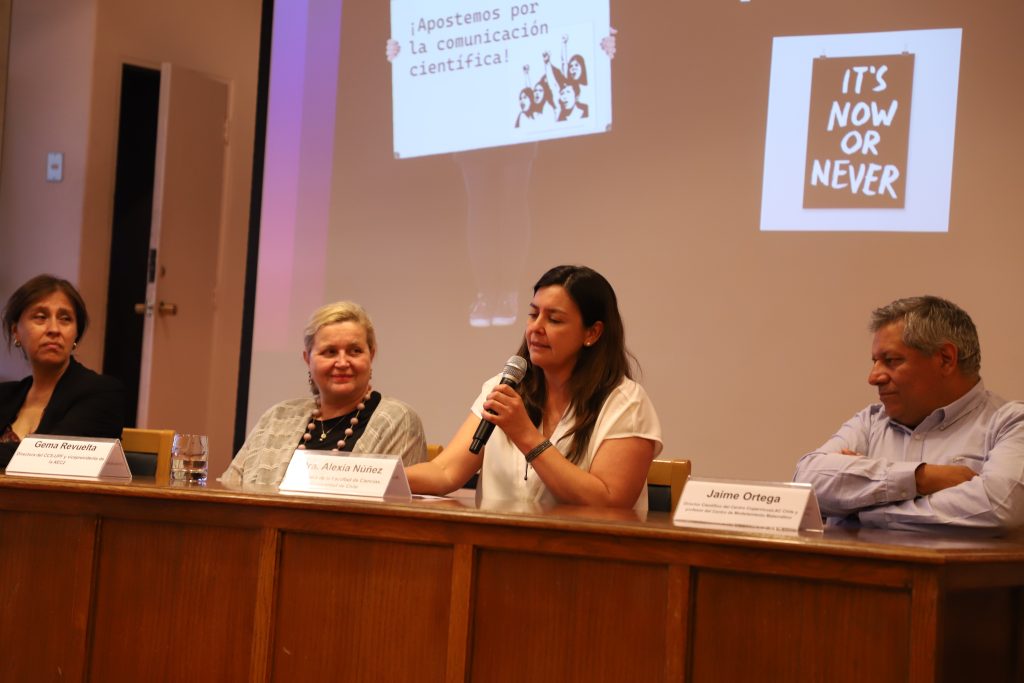The talk ‘The Role of Scientific Dissemination to Combat Disinformation’ brought together national and international experts at the Faculty of Physical Sciences and Mathematics (FCFM), led by Gema Revuelta, to reflect on the vital role of science communication in addressing anti-science ideologies. The event was made possible through collaboration between the European Union in Chile and the University of Chile, with the support of its Vice Chancellors for Outreach and Communications, and Research and Development.
Globalization and the widespread use of technology have improved global communication. However, the overwhelming volume of information and ease of dissemination have created a fertile ground for misinformation in communities. In this context, science journalism and popularization play a fundamental role in ensuring citizens’ access to accurate, high-quality information.
On Thursday, December 12, the University of Chile’s Vice Chancellors for Research and Development and for Extension and Communications, in partnership with the European Union, organized the talk ‘The Role of Science Dissemination to Combat Disinformation.’ The event aimed to promote quality scientific dissemination by sharing European experiences and best practices to strengthen Chile’s National Strategy for Science and Technology.
Gema Revuelta, director of the Centre for the Study of Science, Communication and Society at Pompeu Fabra University in Spain and vice-president of the Spanish Association of Science Communication, was the keynote speaker. Revuelta, a seasoned expert in science communication, has participated in the development of the ‘Principles of Good Practice on Science Communication and Artificial Intelligence’ with over 150 science journalists worldwide.
Christian González-Billault, Vice-Rector for Research and Development at the University of Chile, emphasized: ‘As one of the leading institutions in generating knowledge nationally, we cannot ignore this issue. It is a pressing, everyday challenge our society faces. We must question how we inform ourselves and how we share this data with others.’ He further highlighted the event’s relevance in providing diverse approaches to fostering a more informed and participatory citizenry.
Mariela Ravanal, Director of Communications at the Vice Rector’s Office for Extension and Communications at the University of Chile, reflected on the institution’s role in addressing misinformation: ‘There was space to participate in public discussions where quality information could stand out, becoming a refuge for audiences seeking validated data. Listening to Gema’s extensive experience helps us deepen this strategy and fulfill our mission of contributing to the development of an informed and democratic society.’
The role of communications in science
The discussion, held at the Faculty of Physical Sciences and Mathematics, addressed the societal challenges posed by the mass dissemination of misinformation. Gema Revuelta stressed the need to strengthen science communication: ‘Currently, anti-science ideologies promote disinformation based on particular interests. Instead of validating information from institutions committed to knowledge, they treat it as a belief—choosing to believe or not believe. We’ve seen this during the pandemic and in the context of climate change.’
Revuelta also highlighted the role of technology in exacerbating the issue: ‘Predefined algorithms make it easier for false information to spread than for complex, truthful studies to gain visibility.’ She called for greater public engagement from the scientific community and the promotion of specialized science journalism.
The event featured a panel discussion with notable participants, including Katherine Villarroel, Executive Director of the National Council for Science, Technology, Knowledge, and Innovation; Pablo Brignoli, Head of the Science and Society Division at the Ministry of Science; Alexia Núñez, academic from the Faculty of Science at the University of Chile; and Jaime Ortega, academic from the Faculty of Physical Sciences and Mathematics. The discussion was moderated by Pascale Fuentes, a journalist specializing in scientific topics.
Alexia Núñez reflected on recent advancements: ‘Scientific activity has evolved significantly over the last decade, driven by the growing need for knowledge to move beyond academic institutions and reach society. This is a mission many universities, including the University of Chile, have embraced. Scientists and academics must not only develop knowledge but also communicate it effectively.’
Text in spanish by Carlos Lizana Fernández, Communications journalist at the Vice-Rector’s Office for Research and Development (VID) of the University of Chile.
Photographs: Felipe PoGa, Communications Department, Universidad de Chile.
